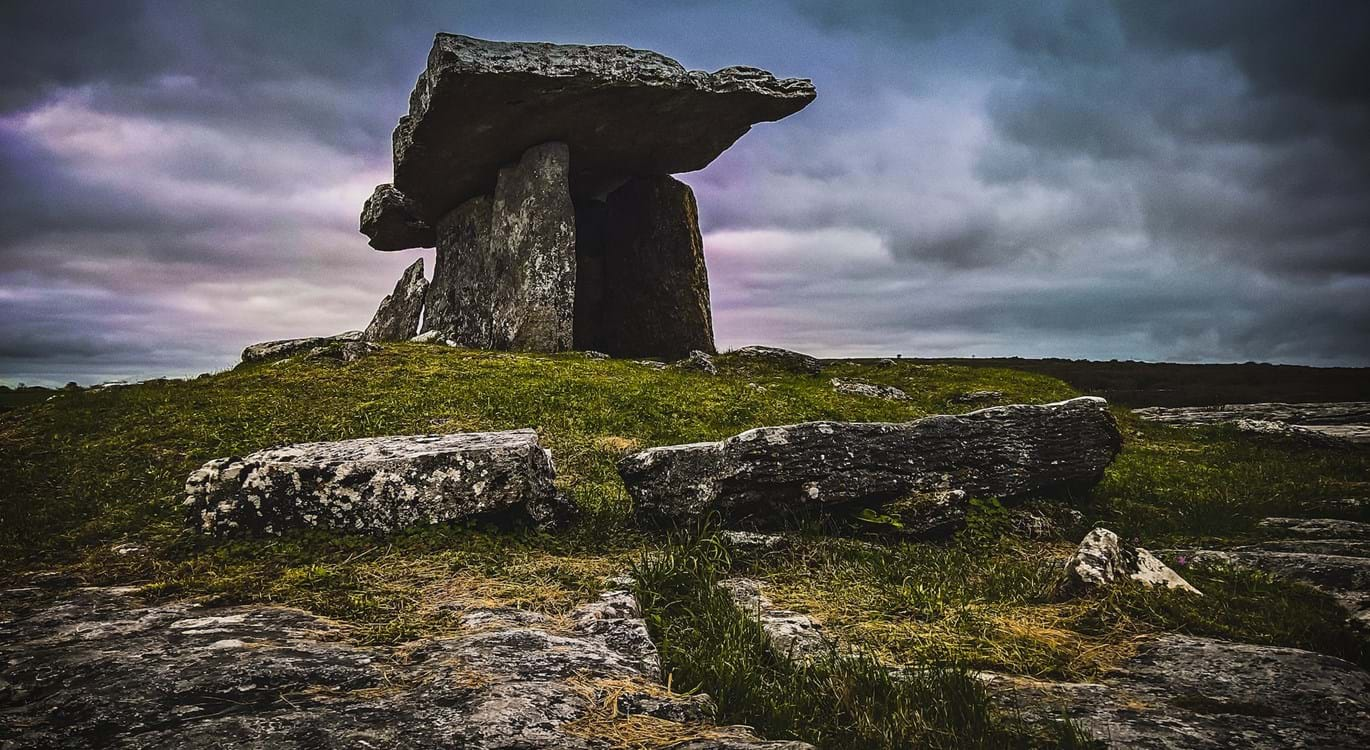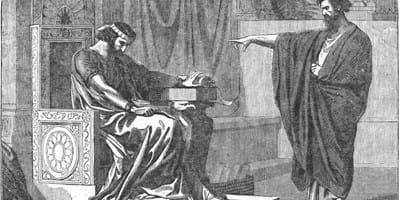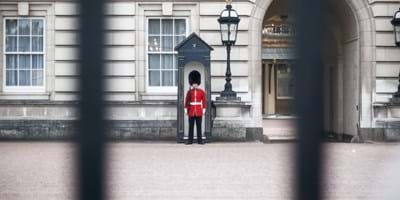They have been challenging to Kate Forbes as she seeks to live out her Christian beliefs in a secular world, and challenging to those with no Christian convictions as to how willing they are to admit the right of a Christian with “conservative religious values” to hold public office.
The debate led me to wonder if there is anything in our UK culture that could be counted as “sacred”. Sacred is defined by the Cambridge Dictionary as something that is “Considered holy, deserving of respect, especially because of its connection with a god . . . considered too important to change”.
In the ancient world, “landmarks” – stones that marked out the boundary of a person’s land – were considered sacred. At least four verses in the Old Testament warn against the removal of these markers, but it wasn't just Jewish culture that held these in high regard. Under the Romans "Anyone who removed a boundary stone was accursed and might be slain; a fine was later substituted for the death penalty. From this sacred object evolved the god Terminus. On February 23 (the end of the old Roman year) the festival called the Terminalia was held."
Sacredness of God's boundaries
"You shall not remove your neighbour's landmark, which the men of old have set, in your inheritance which you will inherit in the land that the LORD your God is giving you to possess" (Deuteronomy 19:14).
The land that God's people of the Old Testament – the Israelites – entered into was given by God and thus viewed as belonging to Him. To alter the boundaries that God set for the varying tribes and families was prohibited. The Bible makes it clear that our life is sacred – given by God and for God – and that the Creator has given some moral boundaries. The Ten Commandments provide a foundation for those boundaries. In them God tells us that:
- He is sacred – there is none like Him, therefore:
- We shouldn't have any other god.
- We should not make any image of Him – either in materials or imagination.
- We should treat His name and all that it speaks of reverently, both in speech, and in ensuring that if we are associated with His name we do nothing that will bring that name into disrepute.
- We should ensure that the time which He asks us to give Him is not profaned, made common. For the Israelites it was the Sabbath (Exodus 20:8); for the Christian, the challenge is, "whatever you do, do all to the glory of God" (1 Corinthians 10:31).
- Those made in the image of God are sacred, therefore all areas of human relations have God-given boundaries:
- Families, and especially parents, should be honoured.
- Life should not be taken.
- Marriage should not be violated.
- Property should be respected.
- Our word should be able to be relied upon.
- Our neighbour’s position and property should not be coveted.
Much could be written to show how our current culture has moved each of these God-given “landmarks”. The debate of the past couple of weeks has demonstrated the challenge it is to still treat them as sacred in a culture where men and women have generally agreed to them being moved. This however raises another question: are there consequences to their removal?
Sacredness of moral and spiritual laws
"‘Cursed is the one who moves his neighbour's landmark.’ "And all the people shall say, 'Amen!’"” (Deuteronomy 27:17; also compare Proverbs 23:10,11).
Doing something just because we are able to do it would be a foolish way to live. Common sense tells us that there are all sorts of things that would be bad for us even though possible to do. Much of this is because of physical laws that we are all subject to. Just because we can step off a cliff doesn't mean that the hold gravity has upon us will be broken! Generally we accept these laws and recognise that some things are off limits, otherwise harm may come to us.
In a world of beings that are moral as well as physical, it follows that, if the designer put in place moral “landmarks”, then there will be repercussions when they are removed. This is stated directly in the verses above in relation to physical landmarks, and in the New Testament we read, "Do not be deceived, God is not mocked; for whatever a man sows, that he will also reap. For he who sows to his flesh will of the flesh reap corruption, but he who sows to the Spirit will of the Spirit reap everlasting life" (Galatians 6:7,8).
Just as the fruit of a seed sown will take time to arrive, the consequences of removing God's moral landmarks may not become evident immediately. The following quotes from 20th century atheistic philosopher Jean-Paul Sarte and his partner Simone de Beauvoir help us understand the downward spiral:
"since there’s no God who designed us, then a human has no blueprint, no essence, no nature. Therefore, we must create our own nature, our own value, our own identity.”
"one is not born a man or a woman, one becomes one. You lead your nature where you want it to go because it doesn’t offer you a script, a plan, or a path. You’re free to make yourself and remake yourself ad infinitum because you aren’t defined and don’t have to be defined by anything except what you want, your own desires.”
Instead of humanity being subject to the sacred, the rejection of God places the burden of defining all things upon the finite rather than the infinite. People begin to believe that they can shape reality simply by choosing to define it in a different way and the warning of Isaiah has become pertinent to our current culture, "Woe to those who call evil good, and good evil; who put darkness for light, and light for darkness; who put bitter for sweet, and sweet for bitter! Woe to those who are wise in their own eyes, and prudent in their own sight!" (Isaiah 5:20,21).
The consequence of removing the Creator's moral landmark? It is that "God [gives] them up" (Romans 1:24,26,28). The very natural consequence of "exchanging the truth of God for a lie" (Romans 1:25) is that you live out the lie and become subject to "vile passions" and a "debased mind" with all the consequent impact upon society (Romans 1:26-32). God's landmarks still remain, however, and, despite the lies we tell ourselves about reality, the truth will still hit home and demonstrate the foolishness of our thinking – Scotland, gender self-ID, and where to house certain prisoners is a current illustration. When the truth of a divine landmark appears so clearly, the challenge is whether we will accept it, and in so doing become free (John 8:32), or plunge ourselves once again into the dark dungeon of defining everything for ourselves.
Sacredness of truth passed on
"Do not remove the ancient landmark which your fathers have set" (Proverbs 22:28).
This final mention of the “landmarks” demonstrates the importance of their continuity throughout generations. The boundary set by their fathers under divine command when they came into the land was to be there for all generations. Can you imagine how freeing that would be for each succeeding generation? Never needing to negotiate afresh the boundaries with their neighbours with all the inevitable conflict; they would be able to just simply get on with life!
Here is a word of warning to those of us who profess to be believers. How well do we know the landmarks that have been passed down to us? Have we sought them out to make sure we know where they are for ourselves, or just listened to others speak of them? If the latter we will be less confident in defence against the movement of them.
When something went wrong among the Israelite people, the person who pointed out the error would often recount the history of the nation. It was understood that a consciousness of their history would help keep their society functioning correctly. Both the good and bad were encountered through these narrations lending context to current conditions and the consequences of the actions of previous generations.
To my mind, it is not a coincidence that combined with the current cultural shifts is a move to redefine, or erase, history. For the believer, this is not an option. The history of the biblical narrative is essential to maintain the sacred landmarks. Why? Because all practice should be rooted in doctrine, and true doctrine is ultimately rooted in the person, character, and works of God. You cannot get more sacred than that. Let us not be guilty of "removing the landmarks", but stand with those who are prepared to defend where they have been placed.






























